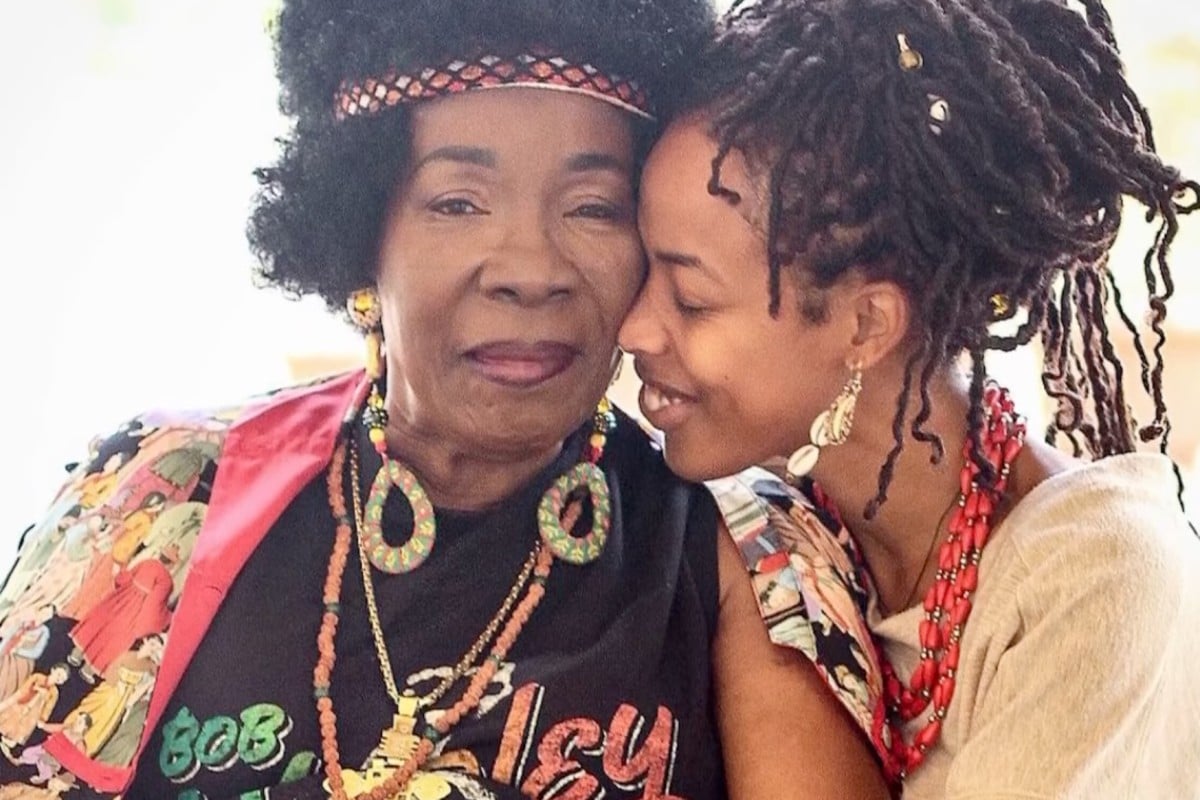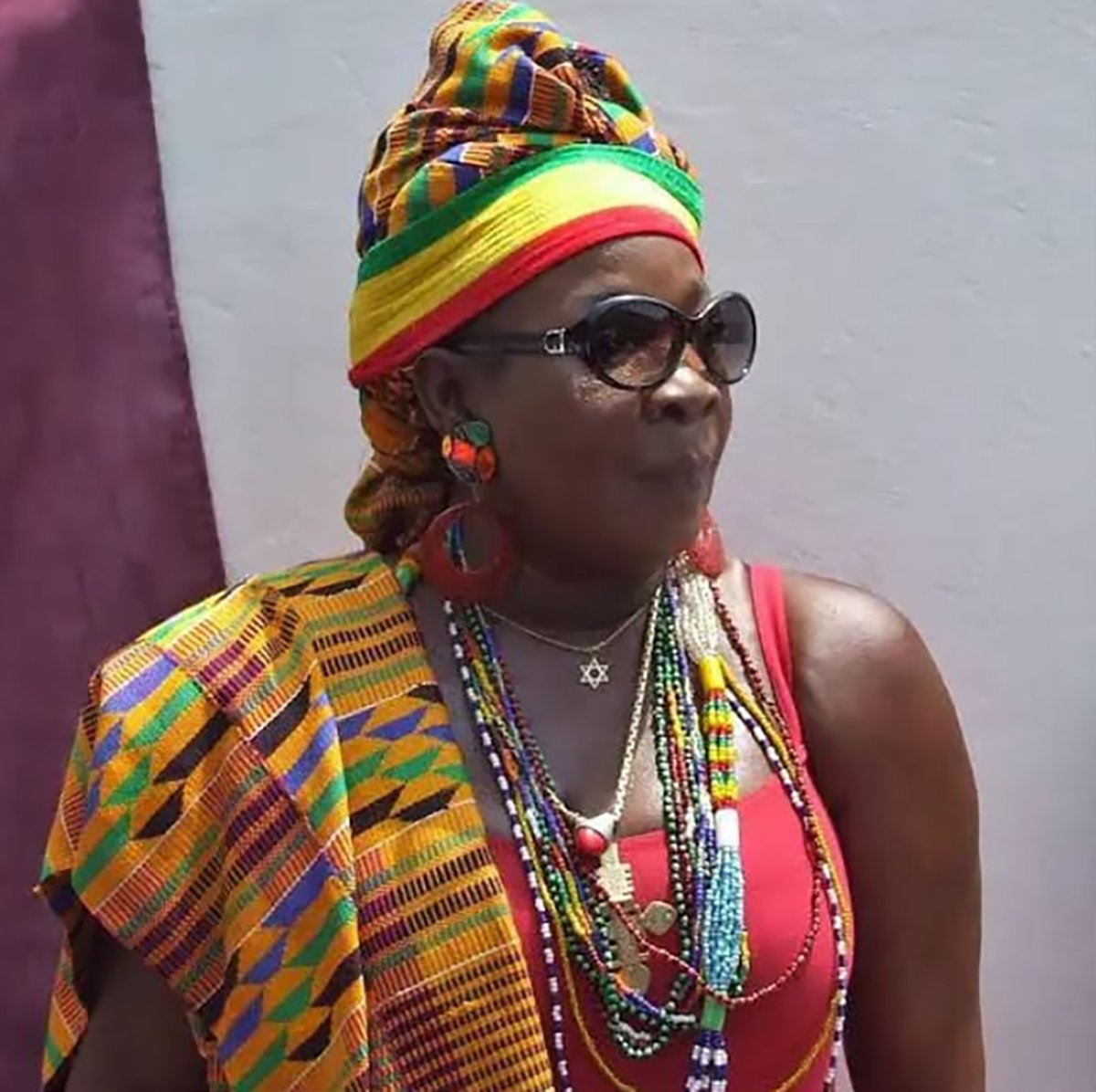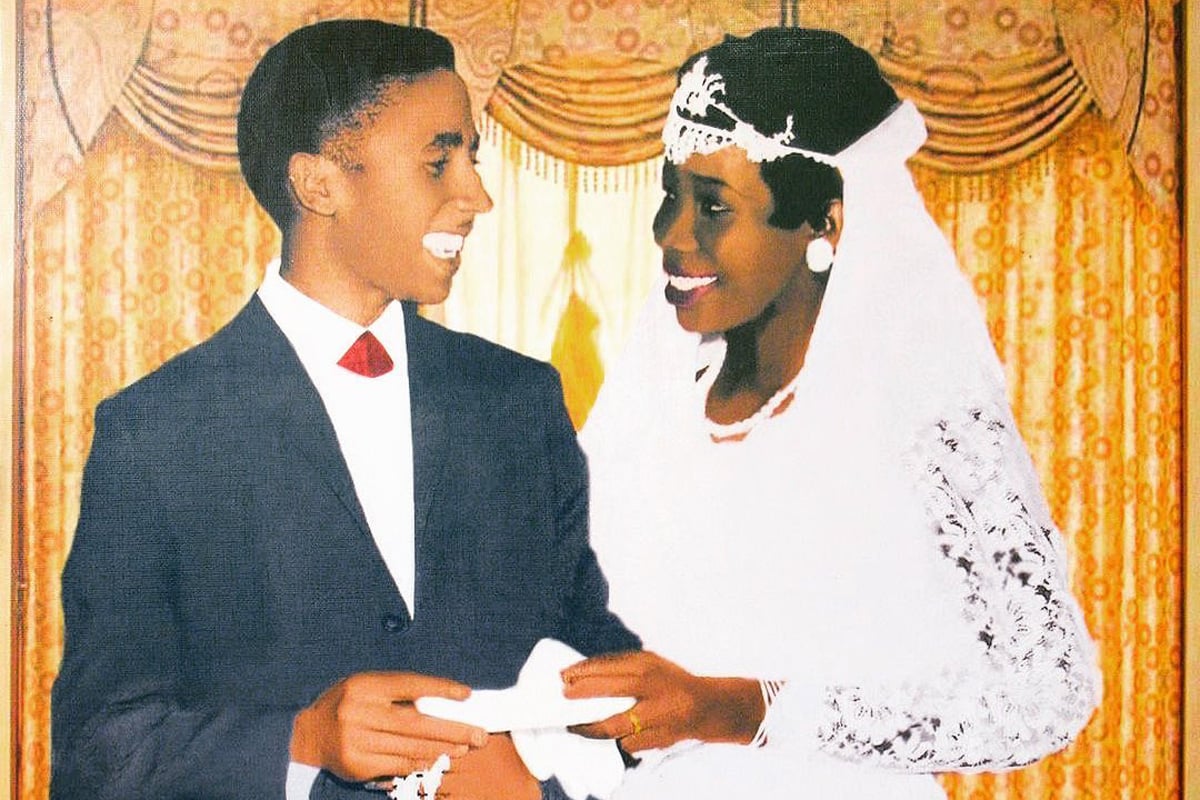“There Would Be No Bob Marley Without Rita Marley,” Says Granddaughter Donisha Prendergast

Hailing her grandmother Rita Marley as “The Queen of Reggae,” actress and filmmaker Donisha Prendergast, in affirming that the Marley matriarch was the driving force behind her grandfather’s success, legacy and introduction to Rastafari, declared that “there would be no Bob Marley without Rita Marley.”
Speaking on a recent “Rebel Girls Good Night Stories” episode, the film director showered praises on her grandmother, whom she said, despite being largely overlooked, “through her fierce determination and love of music grew up to change the entire world through song.”
“She never gave up from establishing herself as a musician, to fulfilling her dreams of becoming a nurse, to inheriting a legacy and a responsibility that was so much greater than she was,” stated Donisha, who is the daughter of Rita’s eldest daughter, Sharon Marley.
“There would be no Bob Marley if there was no Rita Marley. She isn’t often spoken about, [has been] in the shadow of my grandfather, which is why you also have me to make sure that you guys know her,” she added.
Donisha’s comments echo those of Marley’s eldest son, Ziggy, who believes that his father’s legacy cannot be separated from the support and partnership of Rita. While recalling the traumatic event of his parents being shot in an assassination attempt, Ziggy highlighted his mother’s bravery, noting that she too was injured but present at the Smile Jamaica Concert just two days later.
“She still showed up for the show, the same as he did. I’m proud of both my dad and my mum because there’s a team work going on between them. Bob wouldn’t be Bob without Rita, you know what I’m saying?” Ziggy had told The Guardian in 2022.
During the Rebel Girls episode, Donisha—after delving into her grandmother’s early beginnings, including that she was born in Santiago, Cuba, on July 25, 1946—also spoke of her great grandparents’ move to Trench Town, where Rita’s musical career was birthed, long before she laid eyes on Bob Marley.
“My grandma began her songwriting and performing career with the Soulettes, a group she formed with her cousin Constantine and their friend Marlene. Growing up in Trench Town everybody lives in a big yard and so, everybody is always singing and dancing and creating. And so I think it was only natural that their voices would come together because they had been harmonizing together since they were children,” she said.
“They were they were performing for quite some time before they gained the attention of a very popular local music producer by the name of Coxone Dodd, who would then record one of their more popular hits called I Want to go Back.”
“My grandparents met when my grandmother was already on her musical journey and she was studying nursing at school and their paths kind of converged as they were both musicians, both recording and both had similar interest especially after she introduced him to Rastafari. And the rest is History. They changed the world together,” she said.
Donisha also spoke of the classism the I-Threes singer faced during the days of her youth growing up in Kingston, and how, in trying to preserve Bob’s legacy, she unwittingly cast herself into his shadow.
“My grandmother faced a lot of challenges as early as the Soulettes. She was a girl from the ghetto and even though racism wasn’t a huge thing in Jamaica, classism was. And that was still a very big barrier that she had to find ways to navigate,” she explained.
“In the 1980s after my grandfather passed away, my grandma sacrificed a lot in pursuit of making sure that people wouldn’t forget him, forget his music and in doing that she also stepped into the shadow of the legacy in some ways. I think what kept my grandmother moving forward was faith and family. It just wasn’t an option to crumble, because she knew she was destined to be great,” she added.
According to Donisha, the Harambe singer’s legacy, like her husband’s, is worthy of praise and preservation.
“I think my grandma would want to see her legacy preserved in a way that brings light to many of the things that she’s done quietly – from her early active engagement in the music scene in, Jamaica to her transformational work in communities in Africa,” she said.
Referencing her grandmother’s Reggae Icon Award which was presented by the Government of Jamaica in 2019, Donisha said that it was an indication that “they finally recognized who she is and I think that’s important cuz for a long time I think maybe she didn’t feel seen… she’s on every song that Bob Marley sings so listen closely and you’ll hear her voice too,” she said.
Watch the full episode of Rebel Girls below:


